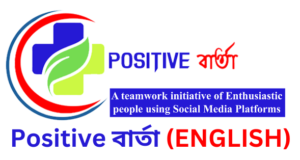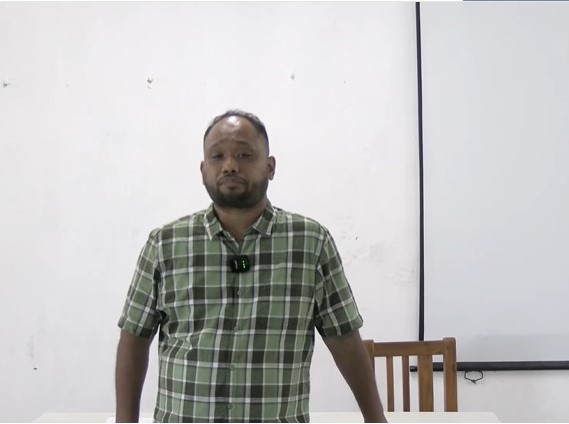Advancing Forensic Medicine: On a crisp autumn morning, Santiniketan Medical College & Hospital witnessed an engaging and enlightening lecture on Forensic Medicine and Toxicology, presented by Dr. Koushik Roy, Assistant Professor in the Department of Forensic Medicine. This event marked a significant educational milestone for students and faculty alike, as the intricacies of forensic science were brought to life in a real classroom demonstration.
Dr. Roy, known for his extensive knowledge and captivating teaching style, opened the session with a compelling overview of the role of forensic medicine in the justice system. Forensic medicine is an intersection of medicine and law, primarily focusing on the application of medical knowledge to legal issues. Dr. Roy emphasized the importance of forensic experts in criminal investigations, particularly in determining causes of death and identifying injuries, which are critical in legal proceedings.
The Importance of Forensic Medicine
The lecture commenced with a discussion on the history of forensic medicine, tracing its origins back to ancient civilizations. Dr. Roy highlighted landmark cases that shaped the field, illustrating how forensic science evolved into a crucial component of modern law enforcement. With a focus on India, he shed light on the challenges faced in the legal system, such as delays in justice and the necessity for accurate forensic evidence.
“Every case tells a story,” Dr. Roy explained, “and as forensic experts, it is our duty to piece together that narrative using science.” He described the various branches of forensic medicine, including forensic pathology, toxicology, and odontology, each playing a unique role in solving crimes.
Real-World Applications
One of the most compelling segments of the lecture involved real-world case studies where forensic medicine played a pivotal role. Dr. Roy presented several high-profile cases, illustrating how forensic evidence was integral to achieving justice. He detailed the methodologies used in these cases, emphasizing the meticulous nature of forensic investigations.
Students listened intently as Dr. Roy recounted the steps taken in forensic pathology to determine the cause of death. He described how post-mortem examinations are conducted, the importance of collecting and preserving evidence, and the role of autopsies in establishing timelines and causes behind suspicious deaths.
The Role of Toxicology
Transitioning to toxicology, Dr. Roy introduced students to the study of substances that can cause harm or death. He explained the various categories of toxic agents, including drugs, alcohol, and environmental toxins. Using a series of slides, he showcased how toxicology tests are performed and interpreted in a forensic context, which often involves complex analytical techniques.
One notable demonstration involved a simulated scenario in which students analyzed blood samples for toxic substances. Dr. Roy guided them through the process of identifying potential toxins and understanding their effects on the human body. “Toxicology is not just about identifying substances; it’s about understanding their impact on health and behavior,” he remarked.
Interactive Learning
The highlight of the session was the interactive segment, where students participated in mock forensic investigations. Divided into small groups, they were tasked with examining evidence from a hypothetical crime scene. Using tools and techniques discussed earlier, students collected data, documented their findings, and presented their conclusions to the class.
Dr. Roy circulated among the groups, offering guidance and feedback. His enthusiasm was infectious as he encouraged students to think critically and creatively. “Forensic science is about observation and deduction. Trust your instincts, but let the evidence guide you,” he advised.
Ethical Considerations
Throughout the lecture, Dr. Roy stressed the ethical considerations inherent in forensic medicine. He discussed the responsibilities that come with the role of a forensic expert, including the obligation to uphold integrity and impartiality. “Our work has a direct impact on people’s lives,” he said, urging students to approach their future careers with a strong ethical foundation.
Future Prospects
As the session concluded, Dr. Roy provided insights into the future of forensic medicine and toxicology. He highlighted the increasing role of technology, including DNA analysis and digital forensics, in revolutionizing investigations. “The field is constantly evolving, and as future practitioners, you will need to adapt and innovate,” he encouraged.
The students left the lecture with a deeper appreciation for the complexities of forensic medicine and a renewed passion for their studies. The event not only enhanced their understanding of the subject but also underscored the importance of interdisciplinary collaboration in solving crimes.
The real classroom demonstration by Dr. Koushik Roy at Santiniketan Medical College & Hospital was a resounding success, showcasing the critical role of forensic medicine and toxicology in the legal system. By engaging students through practical applications and ethical discussions, Dr. Roy inspired a new generation of forensic experts ready to tackle the challenges of the field.
As the sun set over Santiniketan, it was clear that the future of forensic medicine is bright, driven by passionate individuals dedicated to justice and truth. The knowledge gained from this demonstration will undoubtedly serve as a cornerstone in the students’ educational journey, equipping them with the tools needed to make a difference in the world of forensic science.








[…] Read More: Advancing Forensic Medicine: A Real Classroom Demonstration at Santiniketan Medical College & Ho… […]